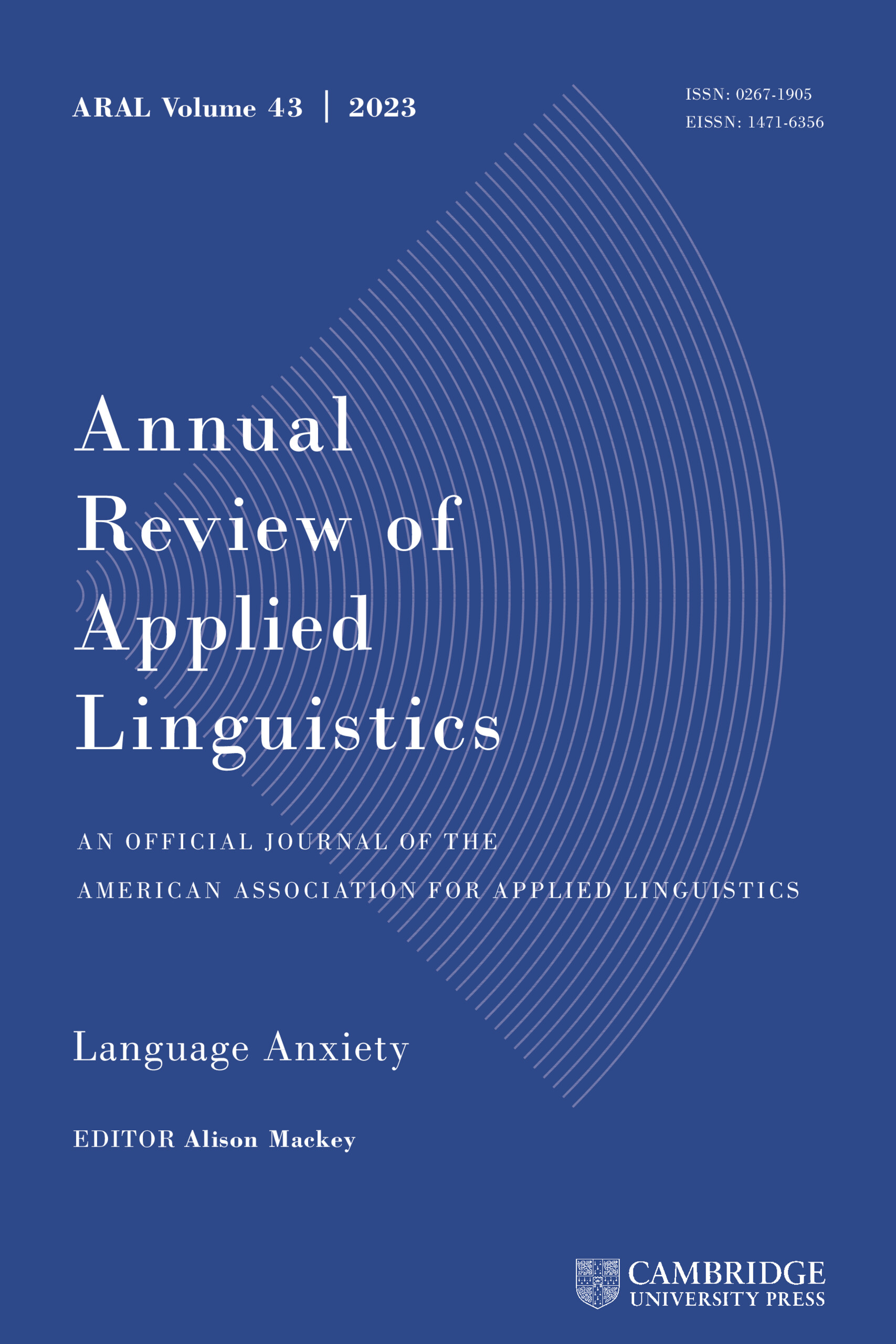Crossref Citations
This article has been cited by the following publications. This list is generated based on data provided by
Crossref.
Alderson, J.Charles
2000.
Technology in testing: the present and the future.
System,
Vol. 28,
Issue. 4,
p.
593.
Fulcher, Glenn
2000.
Book Review: Issues in computer-adaptive testing of reading proficiency: selected papers.
Language Testing,
Vol. 17,
Issue. 3,
p.
361.
Chalhoub-Deville, Micheline
and
Turner, Carolyn E
2000.
What to look for in ESL admission tests: Cambridge certificate exams, IELTS, and TOEFL.
System,
Vol. 28,
Issue. 4,
p.
523.
Alderson, J Charles
and
Banerjee, Jayanti
2001.
Language testing and assessment (Part I).
Language Teaching,
Vol. 34,
Issue. 4,
p.
213.
Davies, Alan
2003.
Three heresies of language testing research.
Language Testing,
Vol. 20,
Issue. 4,
p.
355.
Cumming, Alister
2004.
Broadening, Deepening, and Consolidating.
Language Assessment Quarterly,
Vol. 1,
Issue. 1,
p.
5.
Brantmeier, Cindy
2005.
Nonlinguistic Variables in Advanced Second Language Reading: Learners' Self-Assessment and Enjoyment.
Foreign Language Annals,
Vol. 38,
Issue. 4,
p.
494.
Brantmeier, Cindy
2006.
Advanced L2 learners and reading placement: Self-assessment, CBT, and subsequent performance.
System,
Vol. 34,
Issue. 1,
p.
15.
Desmet, Piet
2007.
L’apport Des Tic à La Mise En Place D’un Dispositif D’apprentissage Des Langues Centré Sur L’apprenant.
ITL - International Journal of Applied Linguistics,
Vol. 154,
Issue. ,
p.
91.
Cumming, Alister
2007.
International Handbook of English Language Teaching.
p.
473.
Chalhoub‐Deville, Micheline
and
Deville, Craig
2008.
Encyclopedia of Language and Education.
p.
2349.
Brantmeier, Cindy
and
Vanderplank, Robert
2008.
Descriptive and criterion-referenced self-assessment with L2 readers.
System,
Vol. 36,
Issue. 3,
p.
456.
Cumming, Alister
2008.
Encyclopedia of Language and Education.
p.
2146.
Lightstone, Karen
and
Smith, Steven M.
2009.
Student Choice between Computer and Traditional Paper-and-Pencil University Tests: What Predicts Preference and Performance?.
Revue internationale des technologies en pédagogie universitaire,
Vol. 6,
Issue. 1,
p.
30.
Oskoz, Ana
and
Chalhoub-Deville, Micheline
2009.
Book review: Chapelle, C. A., and Douglas, D. (2006). Assessing language through computer technology. Cambridge: Cambridge University Press. 138 pp. ISBN 0 521 54949 3 (paperback).
Language Testing,
Vol. 26,
Issue. 1,
p.
149.
Coniam, David
2009.
Experimenting with a computer essay-scoring program based on ESL student writing scripts.
ReCALL,
Vol. 21,
Issue. 2,
p.
259.
Yu, Guoxing
2010.
Effects of Presentation Mode and Computer Familiarity on Summarization of Extended Texts.
Language Assessment Quarterly,
Vol. 7,
Issue. 2,
p.
119.
Jingyan, Cheng
and
Baldauf, Richard B.
2011.
Can EFL Interactive Listening Be Validly Assessed?.
Chinese Journal of Applied Linguistics,
Vol. 34,
Issue. 4,
홍광희
2012.
CALL Teacher Education and L2 Teachers’ Use of Technology: A Simultaneous Analysis of the Process of L2 Teachers’ Technology Integration.
English Language Teaching,
Vol. 23,
Issue. 4,
p.
25.
Brantmeier, Cindy
Vanderplank, Robert
and
Strube, Michael
2012.
What about me?.
System,
Vol. 40,
Issue. 1,
p.
144.


